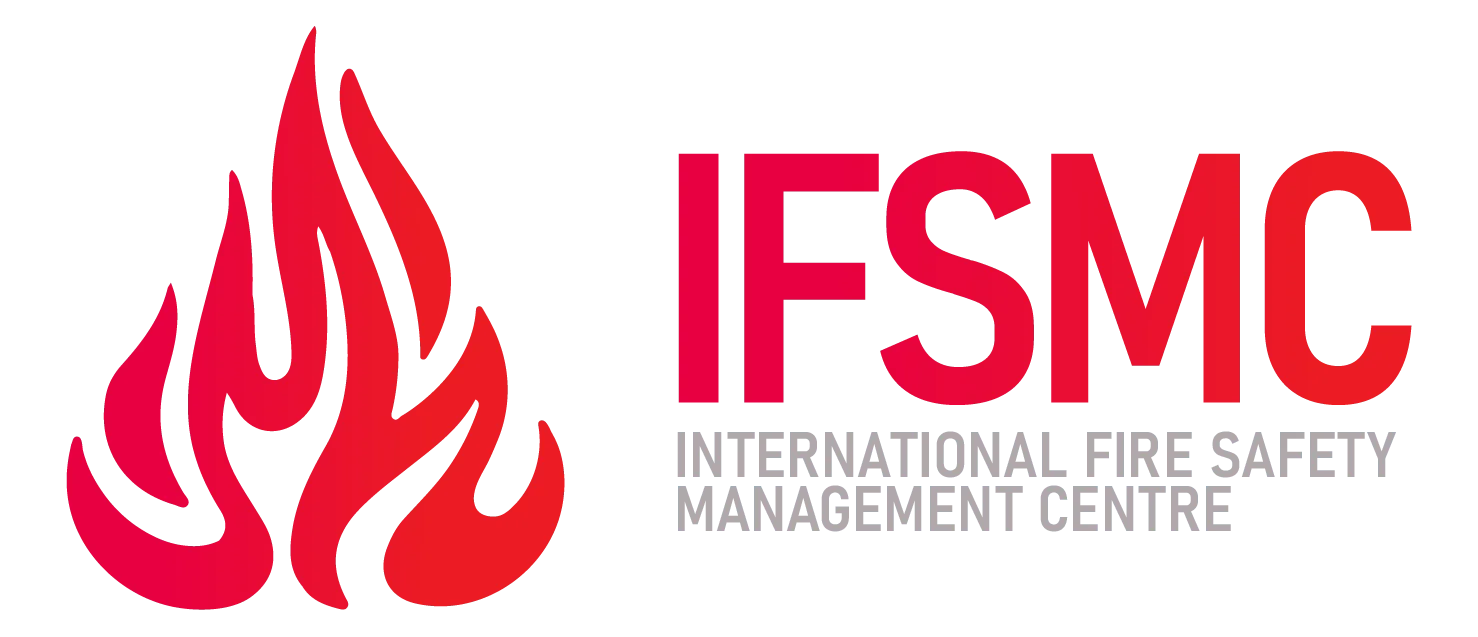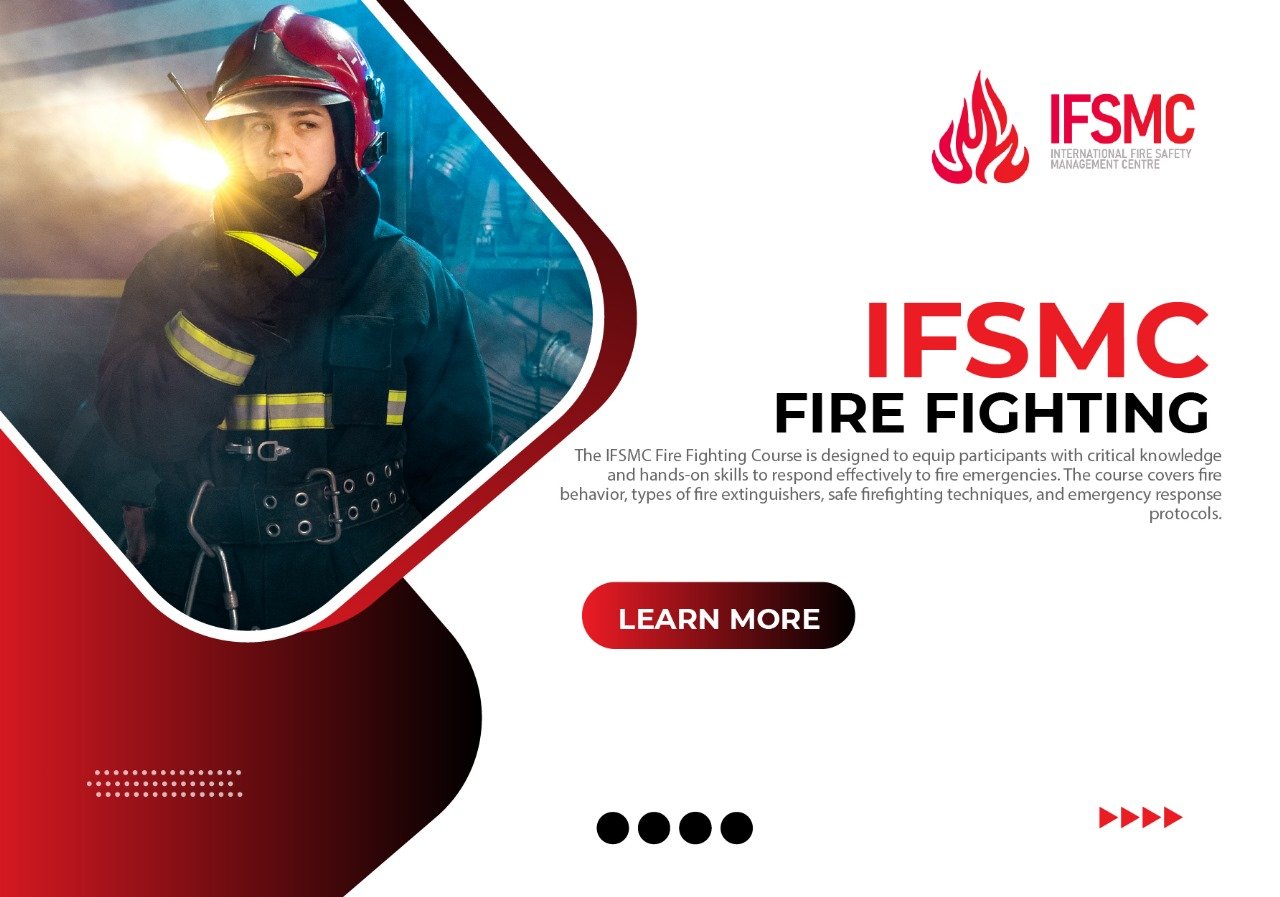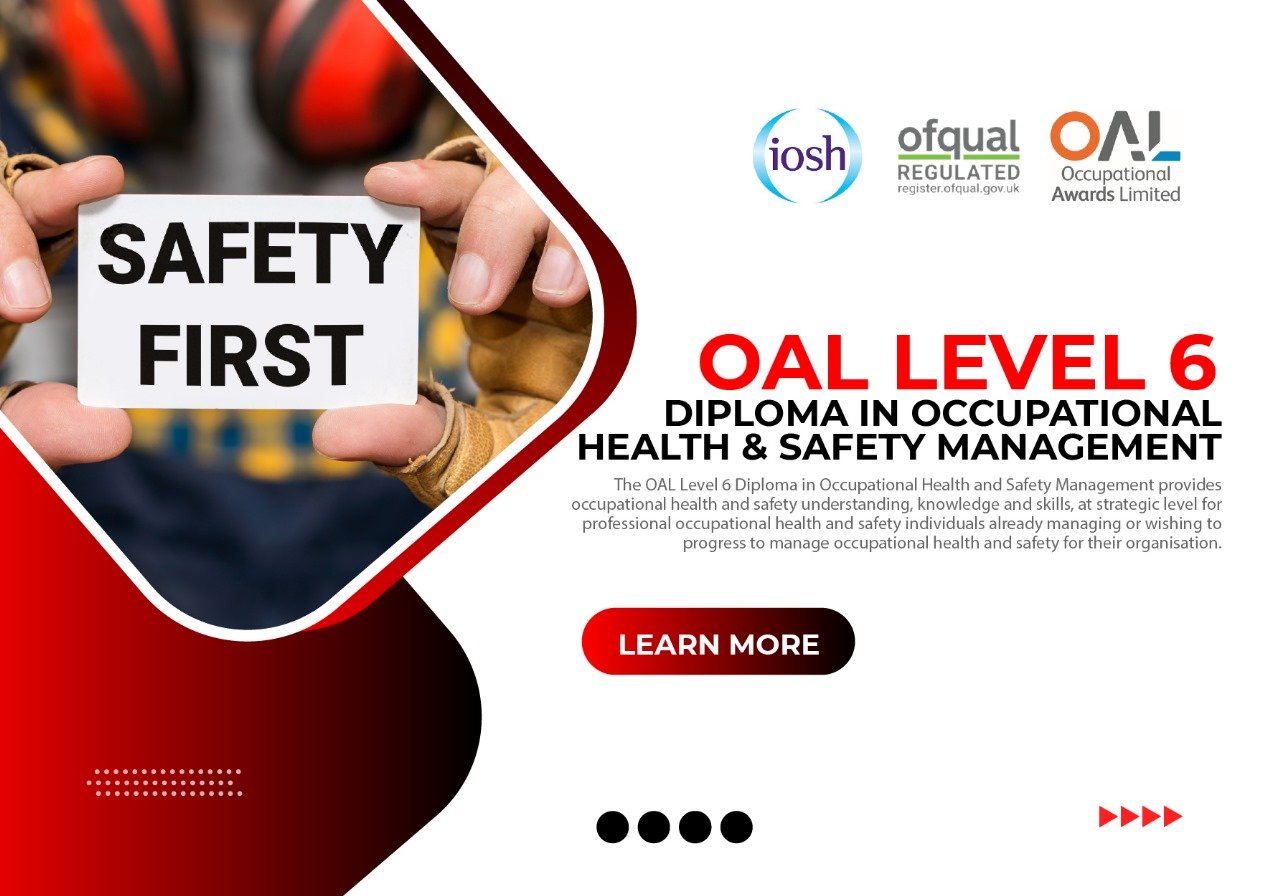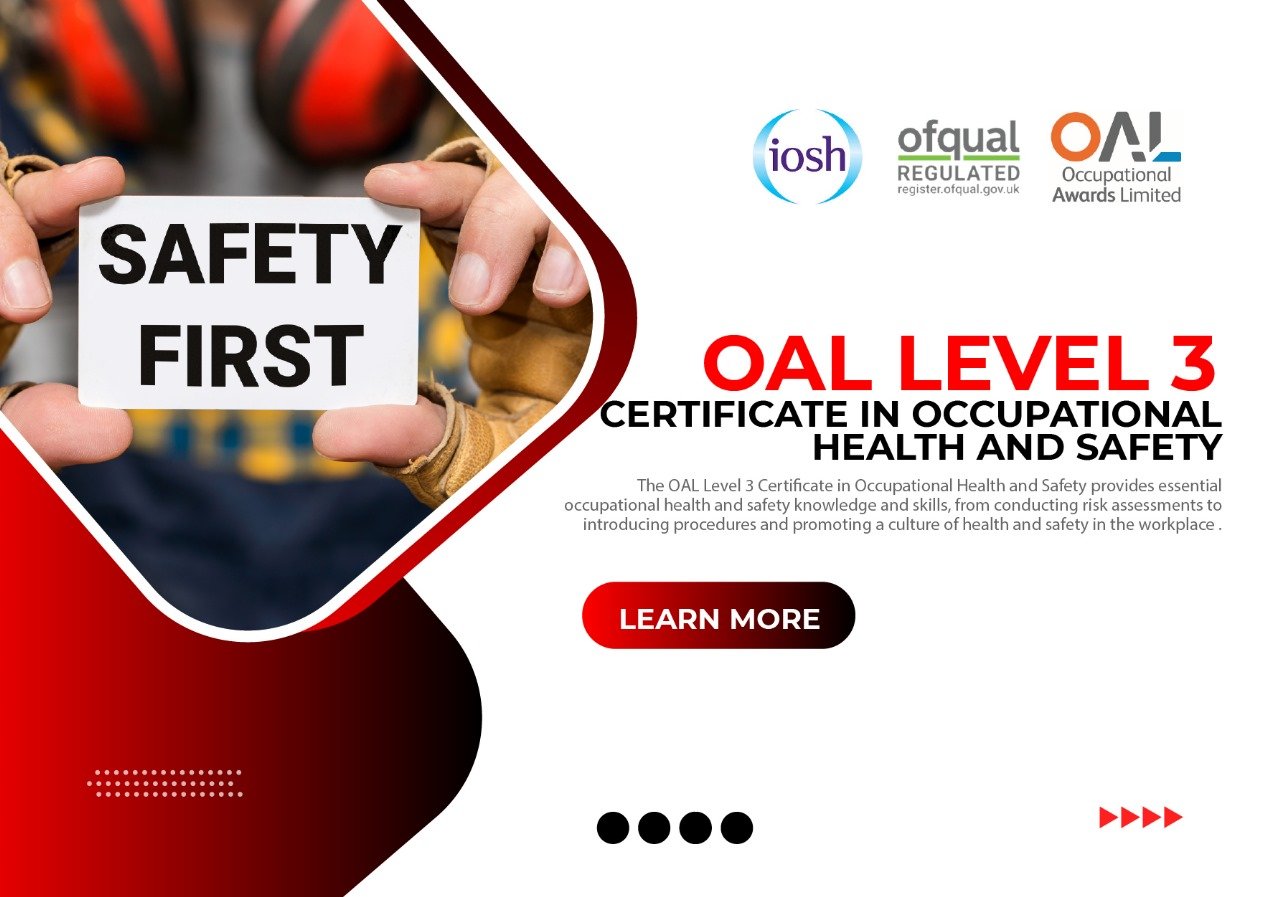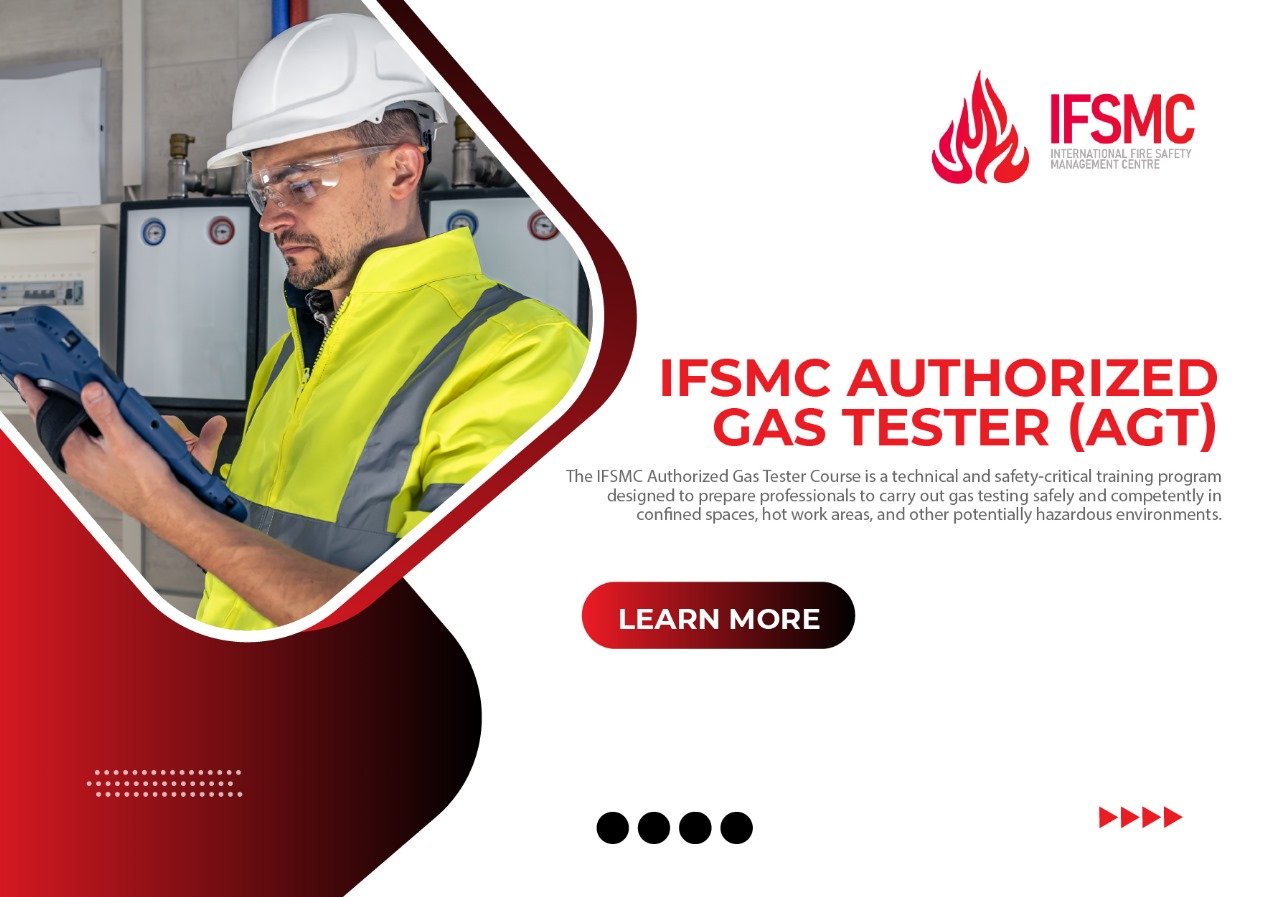Course Overview
The IFSMC Fire Fighting Course is designed to equip participants with critical knowledge and hands-on skills to respond effectively to fire emergencies. The course covers fire behavior, types of fire extinguishers, safe firefighting techniques, and emergency response protocols.
Delivered by qualified instructors from the International Fire Safety Management Centre (IFSMC), this program ensures learners are prepared to handle real-world fire scenarios in various workplace settings.
Learning Objectives
By the end of this course, participants will be able to:
- Understand the science of fire, fire behavior, and classes of fire.
- Identify common fire hazards and implement fire prevention measures.
- Select and use the correct type of portable fire extinguisher.
- Apply basic fire suppression techniques safely and effectively.
- Respond confidently in the event of a fire emergency.
- Assist in evacuation and support emergency teams until professional responders arrive.
Reference
This course is based on the following standards and best practices:
- NFPA 10 – Standard for Portable Fire Extinguishers
- OSHA 29 CFR 1910 Subpart L – Fire Protection
- BS 5306 – Fire Extinguishing Installations and Equipment on Premises
- International Fire Safety Guidelines and IFSMC Fire Safety Framework
Course Outline
Fire Fundamentals
- Fire triangle and fire behavior
- Classification of fires
Fire Hazards in the Workplace
- Common ignition sources
- Prevention strategies
Fire Extinguishers
- Types, selection, and placement
- Inspection and maintenance
Firefighting Techniques
- PASS method (Pull, Aim, Squeeze, Sweep)
- When and how to fight a fire safely
Emergency Response Procedures
- Raising the alarm and evacuation
- Coordination with fire response teams
Practical Fire Extinguisher Use
- Live or simulated fire extinguisher drills
- Safe approach and retreat from fire scenes
Why Choose This Course?
- Aligned with global fire protection standards (OSHA, NFPA, BS)
- Includes live or simulated extinguisher practice
- Enhances personal and workplace emergency readiness
- Certificate recognized across industries and sectors
Who Should Enrol?
This course is recommended for:
- All employees, especially those in high-risk areas
- Emergency response team members
- Security and safety personnel
- Maintenance and operations staff
- Supervisors and site managers
- Anyone seeking basic fire response knowledge
